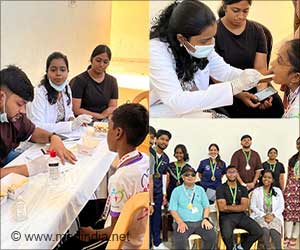Patients with end-stage chronic obstructive pulmonary disease (COPD) who have two lungs transplanted in place of one live nearly two years longer on average, according to a study released Friday.
Lung transplant is by far the most effective treatment available for patients in the final stages of COPD, which progressively constricts the organ's airways.Caused mainly by smoking, the disease killed three million people worldwide in 2005 and it set to become the fourth leading cause of death by 2030, according to the World Health Organisation.
Nearly half of all lung transplants in the world -- both single and bilateral -- in 2006 were performed to treat COPD, but up to now no systematic study has determined which form of treatment works better.
Gabriel Thabut, a researcher at the Bichat Hospital in Paris, and colleagues analysed data from 9,883 COPD patients in the registry of the International Society for Heart and Lung Transplantation.
Of these, 35.7 percent underwent bilateral transplants, while the rest had only one lung replaced, all between 1987 and 2006, said the study, published in the British medical journal The Lancet.
The researchers found that the median post-operative survival time was nearly two years long for patients who had both lungs transplanted, 6.41 years versus 4.59 years.
Advertisement
While the findings would seem to point to double transplants as the clearly preferable option, any such recommendations need to take into account the limited supply of donor organs, the authors note.
Advertisement
Alternatives to transplant -- such as surgery to reduce lung volume, use of endobronchial valves, and pulmonary rehabilitation -- are likewise available, points out E. Clinton Lawrence of Emory University in a commentary, also published in The Lancet.
'There is a limited supply of organs suitable for transplantation and patients -- usually not those with COPD -- die on waiting lists,' he wrote.
Reducing demand for this kind of surgery through smoking prevention programmes is a far better alternative, he suggested.
Source-AFP
SRM/L











